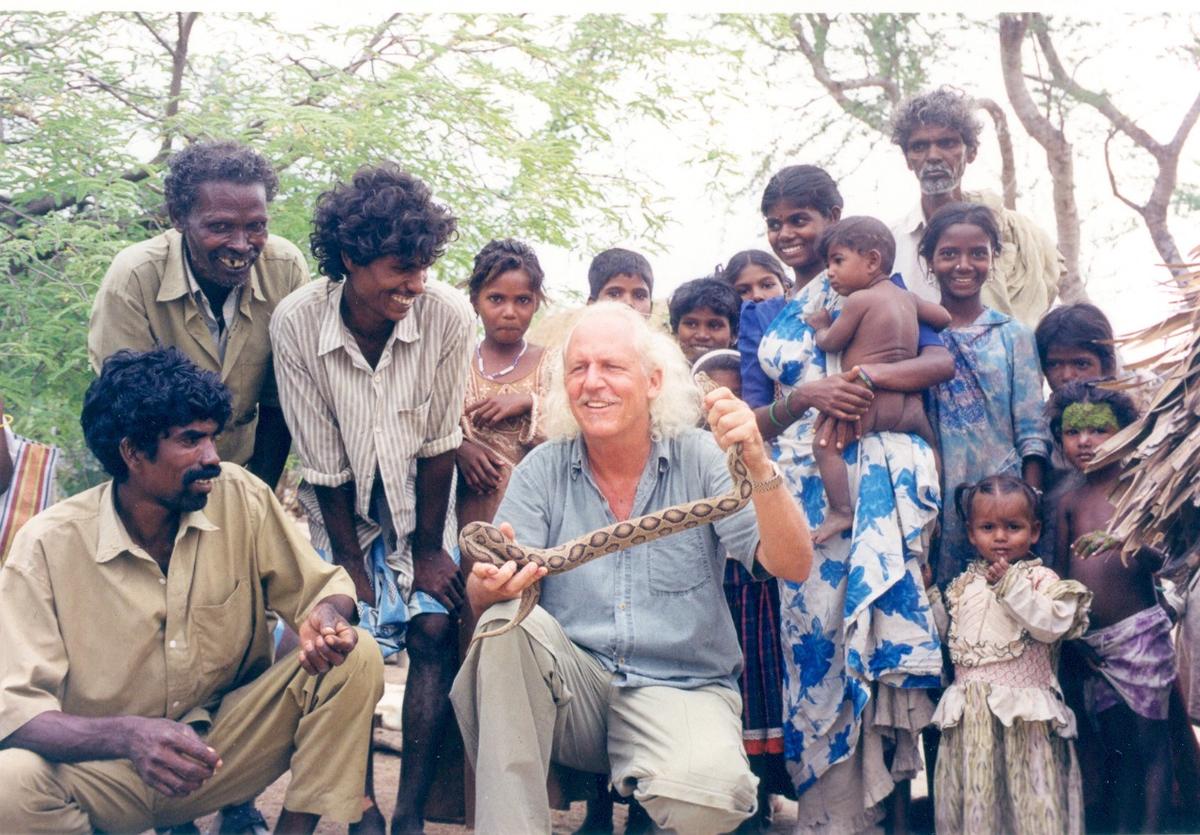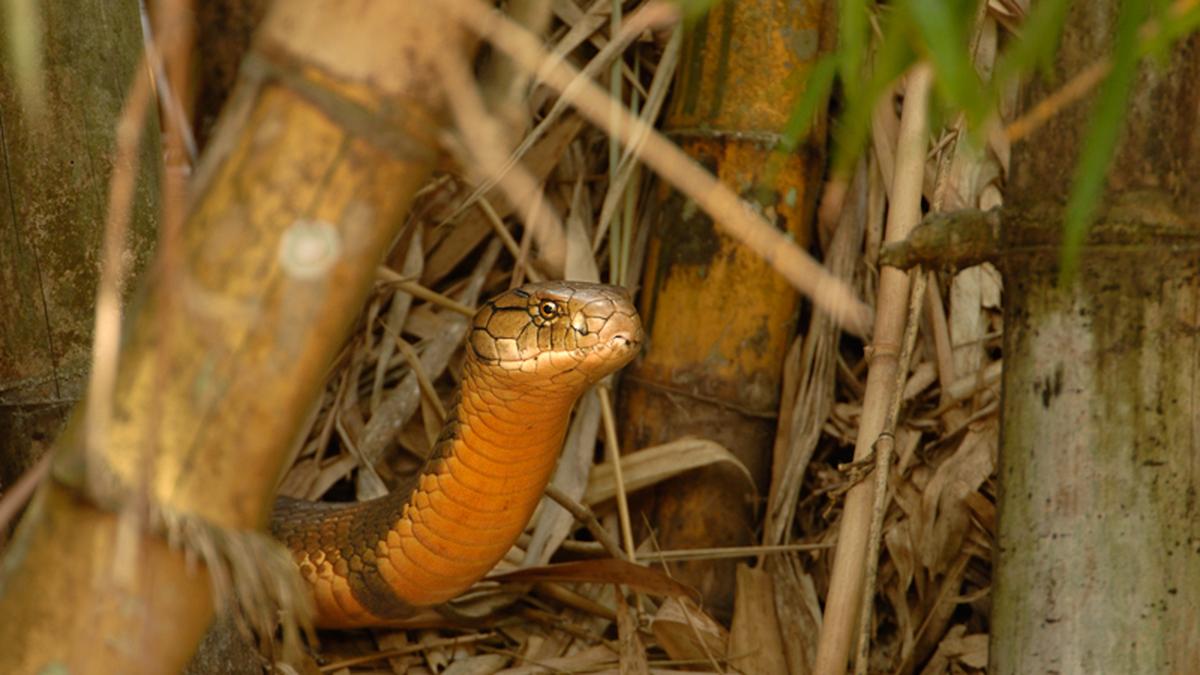Noted herpetologist Romulus Whitaker asserts that reptile education should be part of the school and college curriculum so research in the area can gain momentum. Photo shows a | Photo: Special Arrangement
At 81, he is beginning to feel his age. Still, American-born Indian citizen and herpetologist Romulus Whitaker is on a mission to educate the rural population to co-exist with snakes. Mr. Whitaker is at the forefront of a snake bite mitigation programme to safeguard and educate 800 million rural folks in the country. He perceives snakes as best friends of farmers as they prey on ravenous rodents that destroy crops. If it were up to Mr. Whitaker, he would credit snakes for the green revolution.
Awareness programme
The awareness programme began as a small initiative in the 1980s and has become more systematic in the past ten years. The snake conservation and snake bite mitigation programmes were launched in 2017 under the banner of Madras Crocodile Bank Trust and Herpetology Centre. The team has so far reached out to ten million people and aims to cover the targeted population, over the next 20 years.
They educate people residing in villages to go to the hospital and not opt for herbal treatment or depend on mantric healers. “Farmers are at risk of snake bites, however, they need to stop killing them and understand the larger role of snakes in destroying rodents that wipe out crops”, Mr. Whitaker explained during a telephonic conversation with The Hindu.
Mr. Whitaker asserts that reptile education should be part of the school and college syllabus. Over the years, the study of mammals like tigers, bears, deer, and birds has been more popular, while research into snakes has picked up momentum only in the past ten years.

Romulus Whitaker with Irula tribefolk
Mr. Whitaker has been based near Mysore for several years researching King Cobras in Agumbe forest and studying ways to conserve rainforests to protect the natural habitat of snakes. His interest in snakes especially cobras spiked on account of numerous serpentine carvings in temples. But he would still like to maintain his perspective of snakes as a researcher and scientist, without delving into the mythological stories.
His journey
Amidst this research and awareness work, Mr. Whitaker is simultaneously working on the second and third volumes of his autobiography titled, ‘Snakes, Drugs and Rock ‘n’ Roll: My Early Years’, due to his penchant for this genre of music and dance. The title partly reflects the public perception of snakes dancing to the tune of the flutes played by snake charmers. Snakes are deaf but their keen eyesight follows the movements of the flutes giving an impression that they dance to the music.
His wife Janaki Lenin, a known writer on wildlife and documentary producer, is helping him to write the autobiography. It is expected to be completed in another year’s time.
When he was four, he caught his first coiled creature of the serpent family, a non-venomous milk snake in upstate New York’s scenic natural surrounding. Mr. Whitaker brushes any appellation to him as a reptile educationist. He says, “I am not that educated. I just passed out of Kodaikanal International School and dropped out of the Wyoming University after just a year”.
Over the years, he has donned the roles of travelling salesman and merchant mariner and also served as a lab technician in the U.S. Army in Texas. While serving in the army, he got bitten by snakes when he tried to catch them. He survived the incident with anti-venom treatment. “I met my teacher Bill Haast at the Miami Serpentarium. He taught me how to extract venom,” a skill that he used after he moved to India where he supplied venom to the cancer research institute in Bombay and anti-venom producers.
Mr. Whitaker gained a deeper insight into snakes after interacting with snake catchers in Calcutta and Bombay who gifted him a few of the reptiles. “I love snakes and fortunately I did not do anything stupid while dealing with venomous snakes like Cobras and Mambas,” he says on his survival despite the risks involved in catching snakes for study and research.
Mr. Whitaker was awarded a Padma Shri in 2018 for his work in wildlife conservation, especially for his work with snakes and the establishment of The Madras Snake Park, the country’s largest reptile conservation research and education centre. His National Geographic documentary ‘King Cobra’ won the Emmy Award for outstanding news and Documentary Programme achievement in 1998.
Published – March 29, 2025 08:50 pm IST
